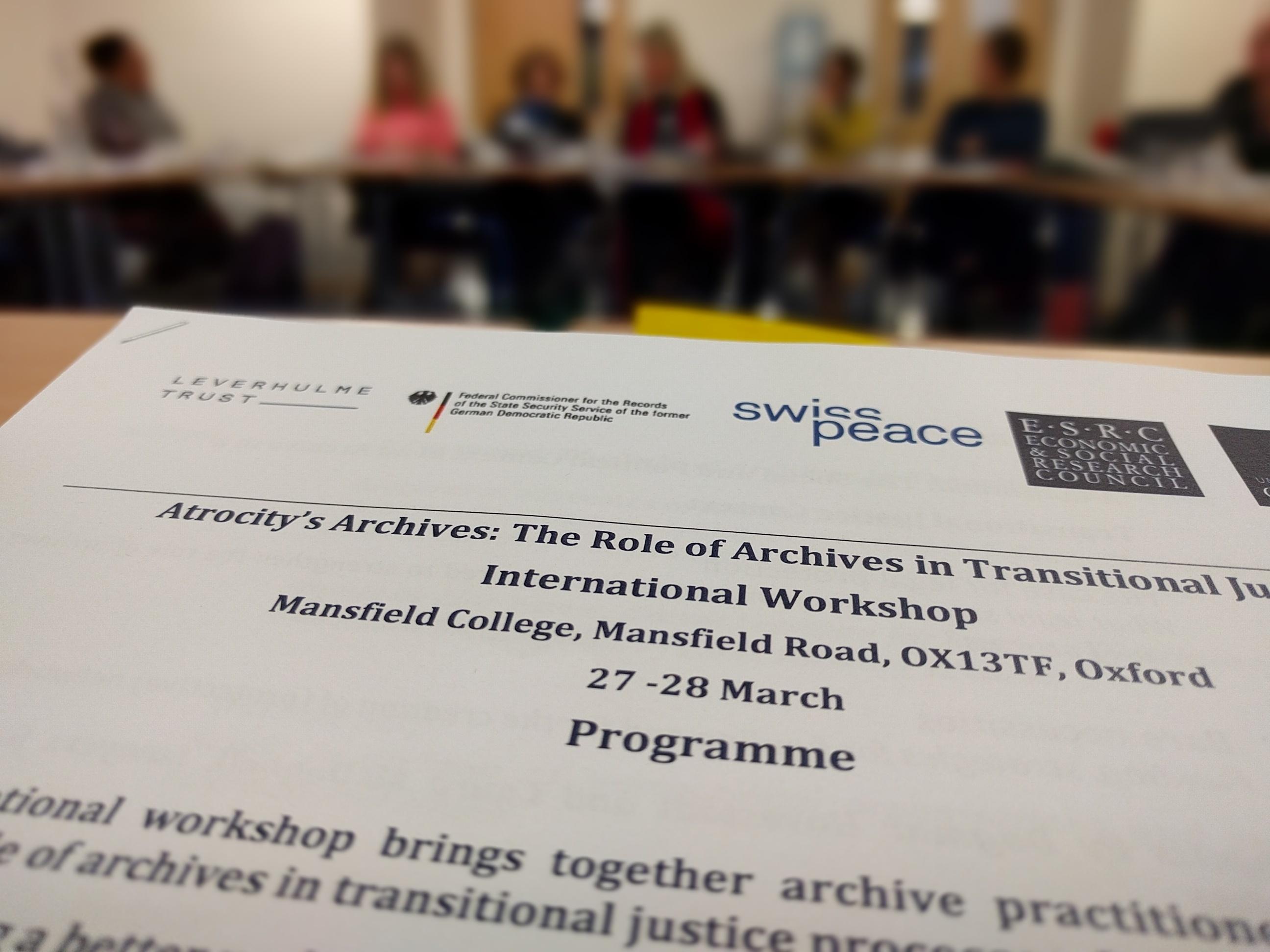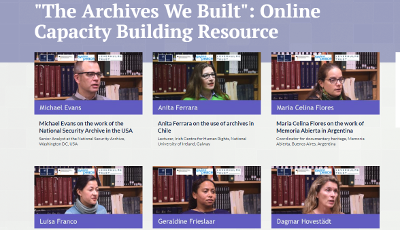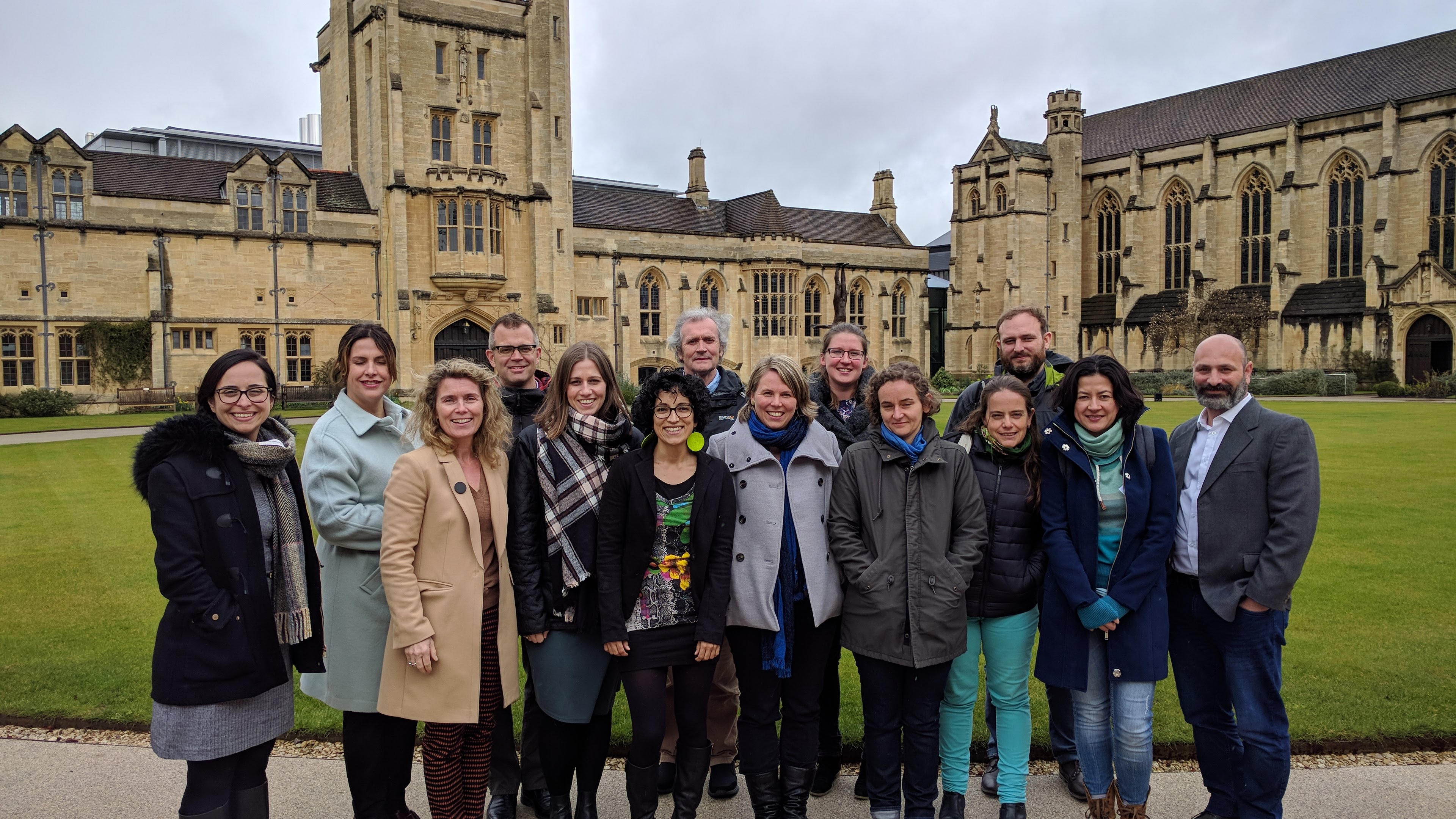a collaborative project of academics and practitioners to develop a better understanding of the role of archives after conflict

Atrocity’s Archives: The role of Archives in Transitional Justice is a collaborative project between swisspeace in Bern, the Stasi Records Archive in Berlin and the Faculty of Law at University of Oxford. It was generously funded by the Economic and Social Research Council Impact Acceleration Account and the Leverhulme Trust. The project aimed at:
- Developing a better understanding of the role of archives in transitional justice.
- Generating knowledge on different practices in various transitional justice contexts.
- Exchanging knowledge on best practices and lessons learnt.
- Discussing the role of academia in the creation and preservation of archives and how best archives and academics can work together to enhance impact.
- Creating an online learning resource to inform other archives about how to best create and preserve archives and how to positively shape TJ processes.

The project team organised a two-day workshop in March 2018 that initiated a platform to kick-start conversations between academics from Europe and archive professionals from a range of transition countries in order to discuss relevant differences and commonalities in their respective political and social contexts and to exchange on the struggle to advance and promote the role of archives in transitional justice processes.
There is a pressing need to discuss these issues because at present, we know little about how different types of archives such as court archives, truth and reconciliation archives, survivor testimony archives, (secret) police or state archives impact on the different stages in a transitional justice process or on proclaimed goals such as reconciliation, forgiveness or healing.
Guidance Note
The workshop facilitated the production of a guidance note “The Role of Archives in Transitional Justice” and the development of a practical tool “The Archives We Built: Online Capacity Building Resource” for practitioners and civil society organisations engaged in archival TJ-work.
“The Archives We Built” capacity building resource and the guidance note “The role of Archives in Transitional Justice” fulfil a clear need, particularly for NGOs working with archives that have little access to academic knowledge or professional learning resources. The project wants to contribute to knowledge production and exchange in the field and wants to enhance further collaborations not only between academics and practitioners, but also between practitioners from different TJ-contexts in order to learn from best practices and lessons learnt.
“The Archives We Built”: Online Capacity Building Resource

The online capacity building resource draws on the experience of different archives in establishing and preserving their archives in, oftentimes, challenging political and social contexts. The project team interviewed all archive professionals who participated in the workshop and some of the academics who are in the process of building smaller archives themselves or work on archives in transition contexts. “The Archives We Built” aims at:
- Building long lasting and easy accessible online resource
- Informing already existing archives, archives in the making and those still to come on how to constructively shape the TJ-process they are embedded in
- Facilitating archive professionals’ contribution to shaping the role of their respective archives in the search for truth, justice and reconciliation.
The video interviews highlight (1) context and feasibility of creating, preserving or protecting an archive; (2) how to mitigate risks and challenges; (3) lessons learnt and recommendations.
Do you have additional questions? Or suggestions? Get in touch with the project team!
Julia Viebach (University of Oxford), Dagmar Hovestädt (Federal Commissioner for the Stasi Records), Lisa Ott (swisspeace), Ulrike Lühe (swisspeace) and Benjamin Thorne (University of Sussex)



